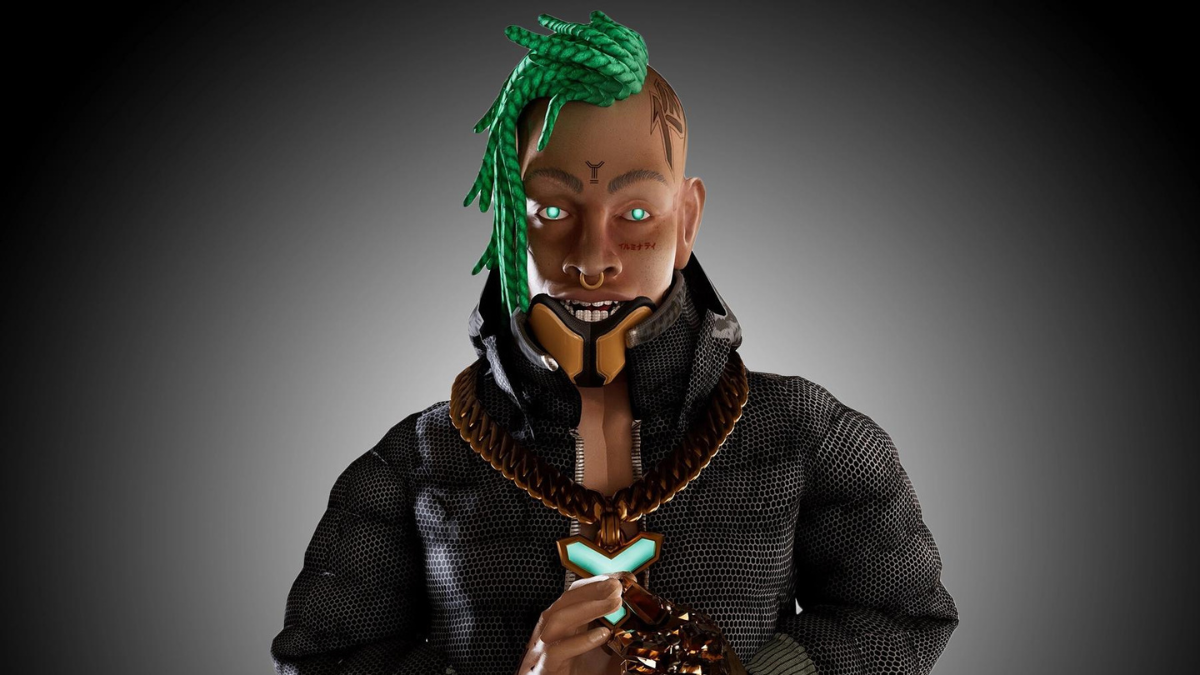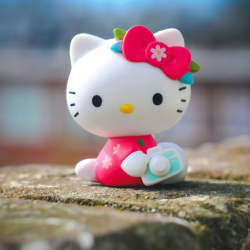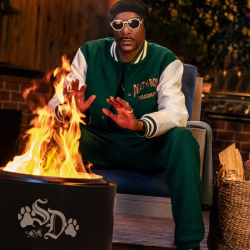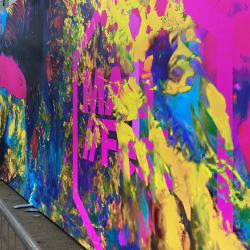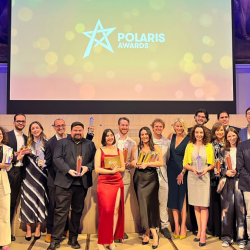You’ve probably heard of AI…
You might know that in some doomsday scenarios it will eventually take over the world, enslaving humanity in the process. Before that though, it’s here to take over our beloved pop charts, and for that reason it must be stopped. Or must it?
AI is becoming increasingly popular in music both as a tool to help musicians create tracks and as a performer in its own right. The most striking example of the latter to date is FN Meka, a fictional avatar rapper created by Brandon Le in 2019. FN Meka has the appearance of a Black male cyborg and according to its creators, all of its character and music is AI generated except for the voice.

By 2021, FN Meka had generated 10 million followers and over one billion views on TikTok. By August 2022, it had been signed by Capitol Records, the first AI generated artist to be signed by a major record label. The answer then, seems to be a resounding yes, an AI generated musician will inevitably claim a number 1 single and usher in the era of AI music at some point. So, if an AI generated artist tops the charts in 2023, what will it mean for music and musicians?
It’s the end of the world as we know it (and AI feels fine)
For musicians, AI generated music is seen as a threat and an affront to their creative endeavours. AI music can be generated relatively easily and quickly through one of the numerous platforms currently out there that can turn simple instructions into melodies and lyrics. This clearly then opens the door to people with supposedly ‘lesser’ music talent. But taking the other view, AI music can be a powerful tool in democratising the production of music, bypassing the need for a BRIT school education.
We’ve also heard arguments against new tech in music before. In the UK, the rush of synth pop bands in the 1980s received criticism for their supposed lack of musicianship, emotion and soul, before a lot of them became world famous chart toppers. It means nothing to me, indeed.
Will AI music follow the same path? The TikTok numbers above indicate that on this youth-orientated platform, AI music has potential and can achieve huge growth with the right character as a vehicle for the music. If history repeats itself, then AI music will become a genre just as much as any other and it could prove to be the perfect soundtrack for a metaverse-enabled world.
However, the road to that eventuality seems more of the long and winding variety than of the straight and narrow. The FN Meka story ended in ignominy, being dropped by Capitol Records just two days after being signed amid a storm of controversy around alleged caricature, stereotyping and cultural appropriation of Black music artists.
Secondly, the idea of computers or AI in music has long been seen by some as impure, tainting the clear water of true artistic integrity.
Human after all
The rise of AI music leans into the longstanding debate about what differentiates man from machine. From the Turing test in the 1950s to the present day capabilities of ChatGPT, humans have developed programmes and technologies to not only show that machines can think, but that they can also feel.
This is at odds with music and musicians. Nick Cave recently railed at ChatGPT’s attempt to write lyrics in his style, saying it is ‘replication as travesty’ and that ‘songs arise out of suffering, by which I mean they are predicated upon the complex, internal human struggle of creation’. The implication here is clear, machines can’t feel and therefore can’t convey deep emotion in songs or lyrics. They can merely imitate.
The live music experience must also be where human and AI music diverges. Artists are increasingly putting on theatre-like productions that provide more than just the music being played live. Taylor Swift’s latest tour sold out in a blink of an eye and her fans devote as much time and emotion to her and her show as they do to the music.
Can AI replicate this? The answer at this point is vague, with events by Travis Scott and Ariana Grande among others on Fortnite showing that there is appetite for virtual events. ABBA have also taken the virtual route with their Voyage production in London, enabling audiences to hear live versions of their songs from AI motion-mapped digital avatars with pre-recorded vocals, without the band itself having to travel or spend time in each other’s company.
Again though, people are investing their time and money in virtual representations of real people. Whether an AI-generated musician could progress beyond being seen as a novelty (particularly in a live music context) remains to be seen.
Radio friendly unit shifter
Nevertheless, the rise of AI music will likely continue and before long it will be normal for the charts to contain multiple tracks from AI artists and for there to be AI artists signed to record labels. The differentiator is the live experience and the human emotion and performance that artists can convey.
As I was writing this, The Walker Brothers’ version of Make it Easy on Yourself, written by the late Burt Bacharach, came on my Spotify playlist. A number 1 single in 1965, it’s hard to imagine AI being able to generate a song with such emotional depth. But then on the other hand, Mr Blobby, Bob the Builder and the Teletubbies have all had UK number ones, so emotional depth is probably the wrong criteria with which to measure this. The charts have always been a receptacle for all forms of music, and this will never change. In this context, it’s likely we’ll see an AI generated number 1 single whether in 2023 or later, but it’s unlikely our new AI musician overlords will be taking over anytime soon.
Featured image: FN Meka / virtualhumans.org

















